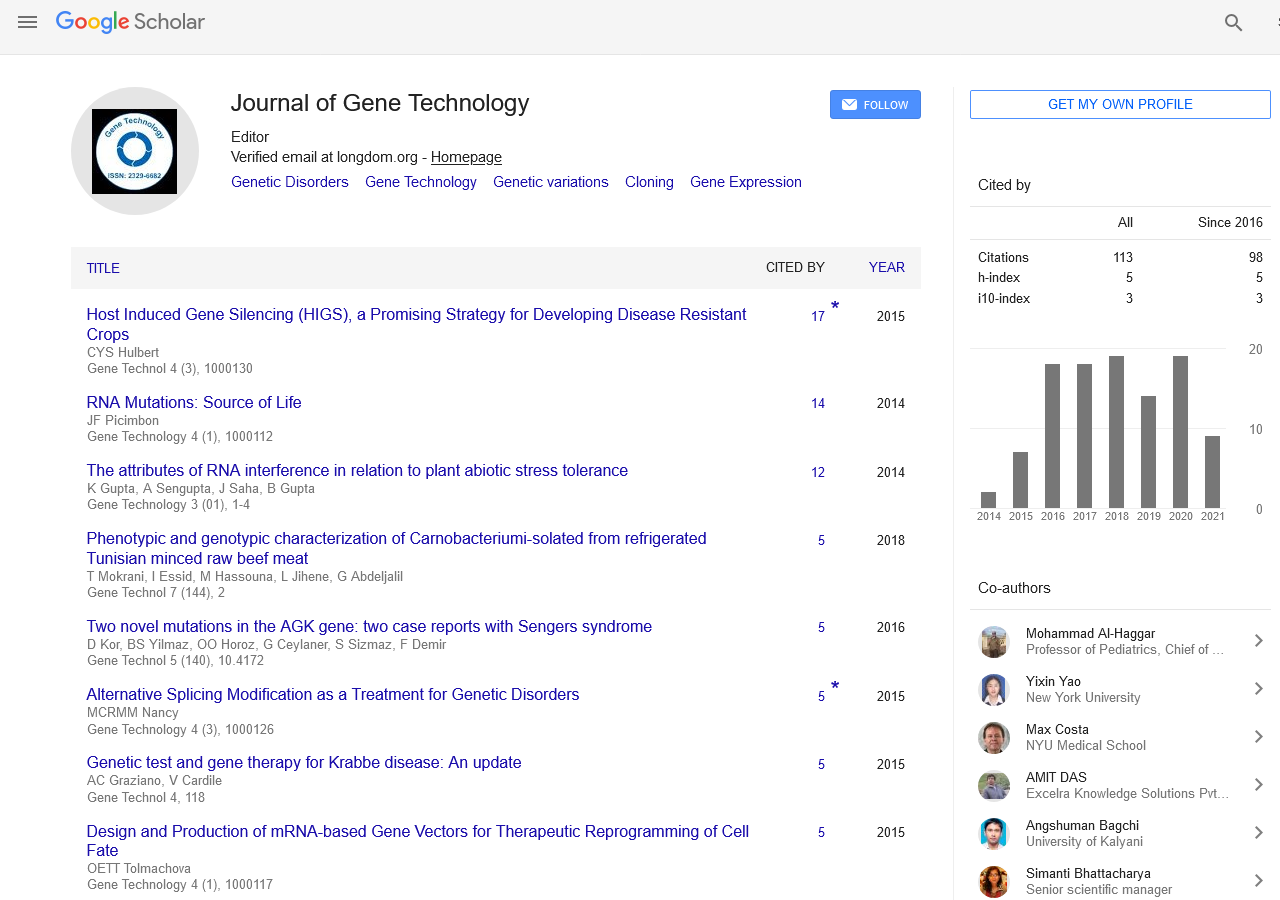PMC/PubMed Indexed Articles
Indexed In
- Academic Keys
- ResearchBible
- CiteFactor
- Access to Global Online Research in Agriculture (AGORA)
- RefSeek
- Hamdard University
- EBSCO A-Z
- OCLC- WorldCat
- Publons
- Euro Pub
- Google Scholar
Useful Links
Share This Page
Journal Flyer

Open Access Journals
- Agri and Aquaculture
- Biochemistry
- Bioinformatics & Systems Biology
- Business & Management
- Chemistry
- Clinical Sciences
- Engineering
- Food & Nutrition
- General Science
- Genetics & Molecular Biology
- Immunology & Microbiology
- Medical Sciences
- Neuroscience & Psychology
- Nursing & Health Care
- Pharmaceutical Sciences
Abstract
The Association of Homozygote T Allele of rs2943641 Polymorphism near of Insulin Receptor Substrate 1 Gene in the Susceptibility to Autism
Background: Autism disorder is a neuro-developmental disorder; it is heterogeneous with multiple genes defects that can lead to autism. The incidence has increased from 1980 to 1990, 5/10,000 to 37/10,000 respectively. The increase in the frequency has led to huge studies being carried out in this field. The main causes and the pathway of the disease is as yet unclear. However, several reports have been documented that indicate that CNVs and single genes disorders that are involved in multiple pathways have a role in the development of autism. The main genes that are associated with ASD are involved in mTOR/PI3K pathway. MTOR/PI3K pathway is responsible for the growth rate and pruning of cellular-synapse. Therefore, increase the activity of this pathway due to mutations in the upstream or downstream of the pathway it may cause ASD to develop. The aim of this dissertation is to present a new aspect by indicating the association of Homozygote T Allele of rs2943641 Polymorphism in IRS1 that is involved in the PI3K pathway and increase the susceptibility to ASD. The effect of homozygote T allele of rs2943641 has been previously reported as increasing the expression of IRS1. Increase in the expression leads to an increase in the phosphorylation of PI3K that may hyper-activate the pathway. Methods: An allelic discrimination assay was suggested to determine the most common allelic variation of rs2943641 in autistic patients in Saudi Arabia. Results and conclusion: If the result indicates an association between the T allele of rs2943641 and ASD, a new aspect in the genetic causes for autism will have been added


